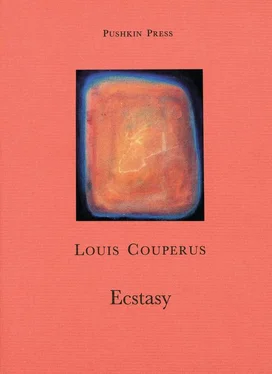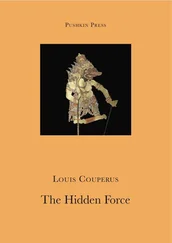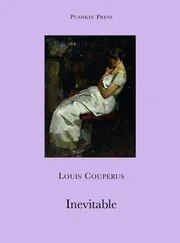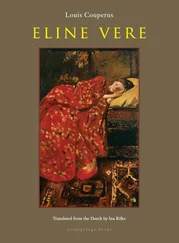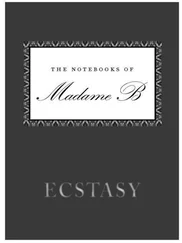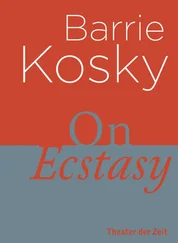He looked up at her, he saw her beseeching him with her eyes, with the expression of her face, with her whole attitude as she stood bending slightly forward. He saw her beseeching him, as he heard her, and then he knew that she loved him. A feeling of bright rapture came upon him, as if something high descended upon him to guide him. He did not stir – he felt her hand thrilling at his shoulder – afraid, lest with the smallest movement he should drive that rapture away. It did not occur to him for a moment to speak one word of tenderness to her, or to take her in his arms and press her to him; she was so transfigured in his eyes that any such profane desire remained far away from him.
Yet he felt at that moment that he loved her; but as he had never yet loved any before; so completely and exclusively, with the noblest that is hidden away in the soul, often unknown even to itself. He felt that he loved her with newborn feelings of frank youth and fresh vigour, and pure unselfishness. And it seemed to him that it was all a dream of something which did not exist, a dream lightly woven about him, a web of sunbeams.
“Lady!” he whispered. “Forgive me …”
“Promise then …”
“Willingly, but I shall not be able to keep my promise. I am weak …”
“No.”
“Ah, I am. But I give my promise, and I promise also to try my utmost to keep it. Will you forgive me now?”
She nodded to him; her smile fell on him like a burst of sunlight. Then she went to the child, took him in her arms, and brought him to Quaerts:
“Put your arms round his neck, Christie, and give him a kiss.”
He took the child from her; he threw his little arms about his neck, and kissed him on the forehead.
“ Le petit Jésus! ” he whispered.
IV
They stayed long talking to one another, and no one came to disturb them. The child had gone back to sit by the window. Twilight began to strew pale ashes in the room. He saw Cecile sitting there, sweetly white; the melody of her half-breathed words came rippling towards him benignly. They talked of many things: of Emerson; Van Eeden’s new poem in the Nieuwe Gids ; views of life. He accepted a cup of tea only for the pleasure of seeing her move with the febrile lines of her graciousness, standing before the tea-table in the corner. In her white dress there was something about her of marble grown lissom with inspiration and warm life. He sat motionless, listening reverently, swathed in a still rapture of delight; a mood which defied analysis, without a visible origin, springing from their sympathetic fellowship as a flower springs from an invisible seed after a drop of rain and a kiss of sunshine. She too was happy; she no longer felt the pain his reverence had caused her. True she was a little sad by reason of what he had told her, but she was happy for the sake of the speck of the present. No longer did she see that dark stream, that inken sky, that night landscape; everything now was light and calm, and happiness breathed about her, tangible, a living caress. Sometimes they ceased speaking and looked towards the child, reading; or he would ask them something and they would answer. Then they smiled one to another because the child was so good and did not disturb them.
“If only this could continue for ever,” he ventured to say, though still fearing lest a word might break the crystalline transparency of their happiness. “If you could only see into me now, how all in me is peace. I do not know why, but so it is. Perhaps because of your forgiveness. Forgiveness is a thing so dear to people of weak character.”
“But I cannot think your character weak. It is not. You tell me you know sometimes how to place yourself above ordinary life, whence you can look down upon its griefs as on a comedy which makes one laugh sadly for a minute, but which is not true. I too believe that life as we see it is only a symbol of a true life concealed beneath it, which we do not see. But I cannot, for my part, rise beyond the symbol, while you can. Therefore you are strong and know yourself great.”
“How strange, when I just think myself weak, and you great and powerful. You dare to be what you are, in all your harmony; I always hide, and am afraid of people individually, though sometimes I am able to rise above life in the mass. But these are riddles which it is vain for me to attempt to solve, and though I have not the power to solve them, at this moment I feel nothing but happiness. Surely I may say that once, audibly, may I not – audibly?”
She smiled to him in the blessedness of making him happy.
“It is the first time I have felt happy in this way,” he continued. “Indeed it is the first time I have felt happy at all …”
“Then do not analyse it.”
“There is no need. It is standing before me in all its simplicity. Do you know why I am happy?”
“Do not analyse it …” she repeated, frightened.
“No,” he said, “but may I tell you, without analysis?”
“No, do not,” she stammered, “because … because I know …”
She besought him, very pale, with folded trembling hands. The child looked at them; he had closed his book, and come to sit down on his stool by his mother, with a look of merry sagacity in his pale blue eyes.
“I obey you,” said Quaerts, with some difficulty.
And they were both silent, their eyes expanded as with the lustre of a vision. It seemed to be gently beaming about them, through the pale ashen twilight.
V
This evening Cecile had written a great deal into her diary, and now she paced up and down in her room, with locked hands hanging down, her head slightly bowed, and with a fixed look. There was anxiety about her mouth. Before her was the vision, as she had conceived it. He loved her with his soul alone, not as a woman who is pretty and good; with a higher love than that, with the finest fibre of his being – his real being – with supreme emotion of the very essence of his deepest soul. Thus she felt that he had loved her and no other way, with contemplation, with adoration. Thus she felt it in truth through that identity of sympathy by which each of them knew what passed within the other. And that was his happiness – his first, as he said – thus to love her, and no other wise.
Oh, she well understood him. She understood his illusion, what he saw in her; and now she knew that, if she really wished to love him for his, and not for her own sake, she must seem no other before him, she must preserve his illusion of a woman not of flesh, who desired nothing of the earth, as other women were to him; who should be soul alone; a sister soul to his. But while she saw before her this vision of her love, calm and radiant, she saw also the struggle which awaited her; the struggle with herself, with her own distress: distress that he thought upon her so highly, and named her madonna, the while she longed only to be lowly and his slave. She would have to seem the woman he saw in her, for the sake of his happiness, and the part would be a heavy one for her to support, for she loved him, ah! with such simplicity, with all her woman’s heart, wishing to give herself to him entirely, as only once in her life a woman gives herself, whatever the sacrifice might cost her, the sacrifice made in ignorance of herself, and perhaps later to be made in bitterness and sorrow.
The outward appearance of her conduct and her inward consciousness of herself; the conflict of these would fall heavily upon her, but she thought upon the struggle with a smile, with joy beaming through her heart, for this bitterness would be endured for him, deliberately for him, alone for him. Oh, the luxury to suffer for one loved as she loved him; to be tortured with longing within oneself, that he might not come to her with the embrace of his arms and the kiss of his mouth; and to feel that the torture was for the sake of his happiness, his! To feel that she loved him sufficiently to go to him with wide arms and beg for alms of his caresses; but also to feel that she had more love for him than that, and higher, and that – not out of pride or bashfulness, which are really egoism, but solely from sacrifice of herself to his happiness – she never would, never could, be a suppliant in that sense.
Читать дальше
